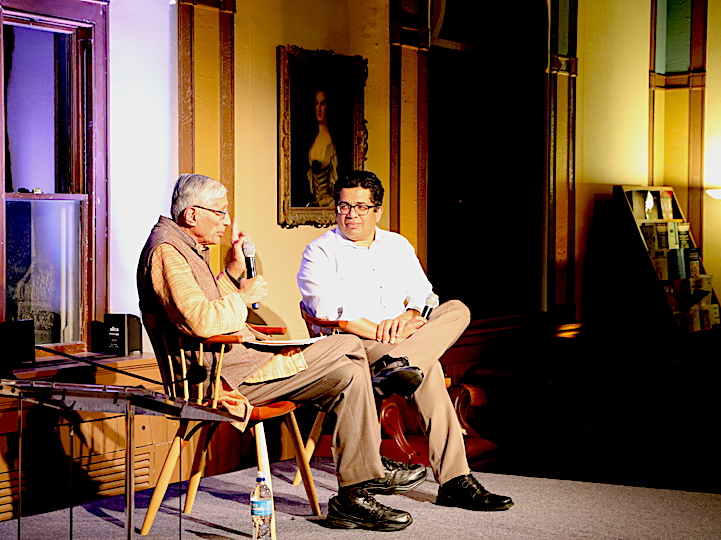The event recognized the one hundred fiftieth anniversary of Mahatma Gandhi’s birth and reflected on his life and work.
“Had it not been for Mahatma Gandhi’s efforts during the last two years of his life, India would not have become a nation for all with fundamental rights and equal protection for everyone,” Gandhi said.
The event was sponsored by the India Initiative, and Gandhi’s visit was sponsored by the Indian American Muslim Council and Hindus for Human Rights.
Honoring His Grandfather's Legacy
Dr. Gandhi opened his talk by describing his dream for a free India that included equality
for all. Gandhiji’s vision for a secular India encompassed a nation with any and even no faiths, and his idea of Hinduism has embedded in it the ideals of non-violence, forgiveness and equality.
However, Dr. Gandhi said that in recent times, this dream has been challenged by an alternative vision in which supremacy and doublespeak has replaced hierarchy and honesty. He described that the current socio-political temperament in India has drawn global concern, for growing nationalism and a waning secular identity threaten the pillars of Indian democracy, freedom, and justice.
Dr. Gandhi described changing rules of crime and punishment, which justify lynch mobs and consider religious and caste violence to be righteous and heroic. Still, he remains optimistic.
“Nationalism’s surge will end,” said Gandhi. “In my own lifetime I have seen the departures of imperialism, apartheid, Hitler, Stalin, and Pol Pot. Oppressions will end and liberty and equality will again be honoured.”
Gandhi insists that the true value of the Mahatma’s legacy is not his reputation but the values of equality, truth, and accountability in government institutions. He spoke passionately of the importance of freedom of speech and equal protection for all and urged people to stand against the rise of nationalism.





